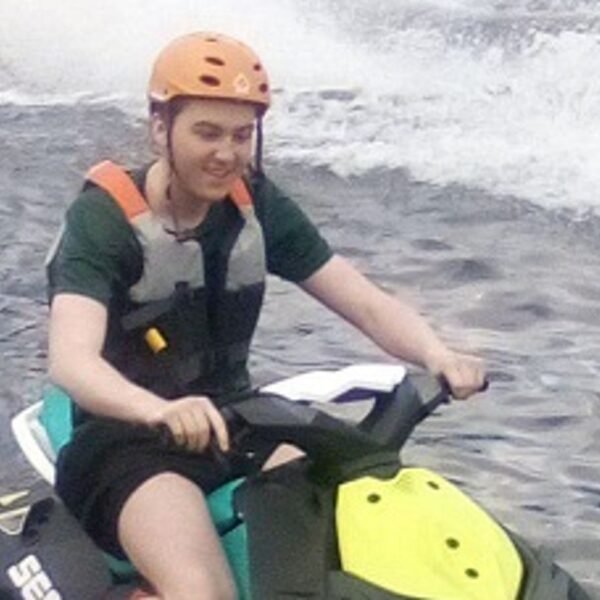One of Latin America’s most celebrated journalists, whose work has toppled presidents and set off criminal investigations into government wrongdoing, was recovering from an aggressive bout of chemotherapy when he got more bad news: A Peruvian prosecutor was investigating him for bribery.
The journalist, Gustavo Gorriti, 76, the top editor at an investigative news media organization in Peru, is no stranger to trouble.
In the 1990s, he was kidnapped by members of a secret death squad that Peruvian investigators later determined was headed by former President Alberto Fujimori. Mr. Gorriti had spent years reporting on corruption and human rights violations by the Fujimori’s government.
More recently, he helped expose an enormous bribery scandal known as Operation Carwash that has led to the arrest and resignation of government officials across Latin America.
Now, Mr. Gorriti himself is facing imprisonment.
The attorney general’s office in Peru general is investigating him over a bribery complaint that accuses him of providing positive coverage in exchange for government leaks. Mr. Gorriti denies the complaint.
Journalists and free speech supporters say the accusation is politically motivated, meant to punish Mr. Gorriti for his past investigations.
The case against him is among a number of attacks on independent news media outlets in Peru, according to press freedom groups, and part of a broader wave of efforts to censor journalists in an increasing number of countries in Central and South America.
“More and more politicians are stigmatizing journalists and the media in their speeches,” according to Reporters Without Borders. “Political actors employ disinformation campaigns, abusive prosecutions and state propaganda that openly fosters distrust of the press and encourages polarization.”
In Peru, the targeting of journalists reflects a broader democratic backsliding, analysts say.
A conservative coalition in the legislature has sought to consolidate power by bypassing legislative procedures to fill the country’s courts, electoral agencies and the attorney general’s office with allies.
Conservative lawmakers have also passed legislation making it more difficult to investigate, prosecute and punish corruption cases and amended the constitution to increase the power of the legislative body.
And, increasingly, they are using that power to go after journalists.
Paola Ugaz, a journalist who revealed years of child sexual abuse and corruption at an influential Peruvian religious organization, has faced several criminal investigations, including accusations of money laundering.
Other journalists have been convicted on defamation charges for reporting on politicians, religious organizations and sports officials.
International press freedom groups agree that Peru has become an increasingly hostile environment for journalists. In the past two years, the country’s ranking has plummeted on a press freedom index maintained by Reporters Without Borders. It fell to 77 from 125 — the biggest drop of any country in Latin America.
A recent study by Freedom House, a human rights organization that rates levels of liberty in countries around the world, dropped Peru’s rating last year from “free” to “partly free.”
The group said the country had seen a “weakening of judicial independence” and that “high-profile corruption scandals have eroded public trust in government, while bitter divides within a highly fragmented political class have repeatedly produced political turmoil.”
Mr. Gorriti is the editor in chief of IDL-Reporteros, a Peruvian investigative website known for breaking corruption stories that implicate powerful people.
He got his start documenting the rise of the violent Shining Path rebel group in the 1980s, and exposed the narco-trafficking links of top intelligence officials under Mr. Fujimori, who, according to investigators, later ordered his kidnapping.
The kidnapping played a role in Mr. Fujimori’s eventual conviction in 2009 for various crimes and a sentence of 25 years in prison.
Mr. Gorriti moved to Panama, where he exposed links between government officials and drug traffickers for a Panamanian newspaper.
His reporting has implicated all four Peruvian former presidents who held power between 2001 and 2020 in some form of wrongdoing. One of them, Alan García, died when he shot himself in the head in his home after the authorities arrived to arrest him.
Mr. Gorriti said that despite decades of what he described as persecution, the bribery investigation stood out.
“At the time when Fujimori was in power, there was imminent physical danger,” he said in an interview. But now, he said, current government officials are “turning the entire judicial system into an additional tool for them. That has been much more intense now than in the past.”
Artur Romeu, the director of the Latin America bureau for Reporters Without Borders, said it was “striking that they have taken such a step against one of the most recognized journalists.”
After years of authoritarian rule in Peru under Mr. Fujimori, elections in 2000 ushered in an era of democracy, economic growth and a flourishing of free expression.
But in recent years, the economy has faltered and there has been a plummeting of trust in the government. And increasingly the courts have been used to silence critics.
Mr. Gorriti and other journalists have also faced harassment from right-wing groups that have demonstrated outside their offices and thrown feces at their homes. Right-wing television channels frequently disseminate disinformation about independent journalists, accusing Mr. Gorriti of being a criminal mastermind.
As part of the investigation, prosecutors are also asking for Mr. Gorriti to turn over the phones he has used in his reporting and reveal his sources. He has refused to do so.
The case against Mr. Gorriti has made it more difficult for other journalists to do their work, said Jonathan Castro, a political reporter and the editor of a podcast.
“There are sources who no longer provide information because they are afraid,” he said.
The government has pursued defamation cases against journalists in the past, but is increasingly pursuing more serious criminal charges.
Ms. Ugaz, the journalist accused of money laundering, said in an interview that she has faced death threats on social media and verbal abuse on the streets of Lima, the capital, as a result of disinformation campaigns against her. The disinformation includes false claims that she, along with the family of Nobel Prize winning author Mario Vargas Llosa, was smuggling uranium and plutonium.
“There is no filter,” she said. “You’d think it’s all so absurd that no one would believe it.”

















